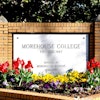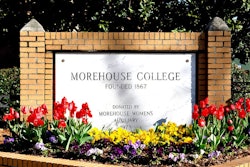A new study by a Middle Tennessee State University (MTSU) professor indicates that women’s basketball teams at historically Black colleges and universities (HBCUs) are penalized at higher rates than teams from other institution types, suggesting that long-standing assumptions of racial bias in college athletics could be true.
Although HBCU teams only accounted for 6.9 percent of the 333 institutions analyzed in the study, they were the five most penalized teams in the 10-season study period, according to Dr. Andrew Dix, assistant professor of communication at MTSU. Further, eight out of the 15 most penalized teams were HBCU teams.
Dix posits that bias, coupled with limited referee monitoring and overrepresentation of White males in the National Collegiate Athletic Association’s (NCAA) senior leadership, has resulted in a “micro-level rules structure for personal fouls that is disadvantageous for female basketball teams from HBCUs.”
In the study that was recently published in the Howard Journal of Communications, Dix identified 23 HBCU women’s basketball teams and 310 women’s basketball teams from predominantly White institutions (PWIs). He calculated each team’s 10-year average of personal fouls per game (PFPG) using NCAA Division I women’s basketball data from 2008 and 2017.
Study findings showed that, during the study period, female HBCU teams were called for a PFPG average of 18.91 by referees compared to PWIs’ PFPG average of 17.15, demonstrating referee bias, according to Dix.
Every women’s college basketball team from an HBCU held a PFPG average above the Division I average, the study found. No PWI held a PFPG average that was statistically significant at the .01 level.
“Adverse calls against HBCUs relative to PWIs in women’s college basketball offers circumstantial evidence of a larger socio-cultural issue that has hamstringed HBCUs sports teams within the field of play,” Dix said in an email to Diverse. “Fostering a dialogue on referees calling more personal fouls against HBCU women’s college basketball teams relative to PWI women’s college basketball teams is a good starting point for creating awareness that will better inform sports consumers and hopefully bring about meaningfully change on the women’s college basketball court.”














